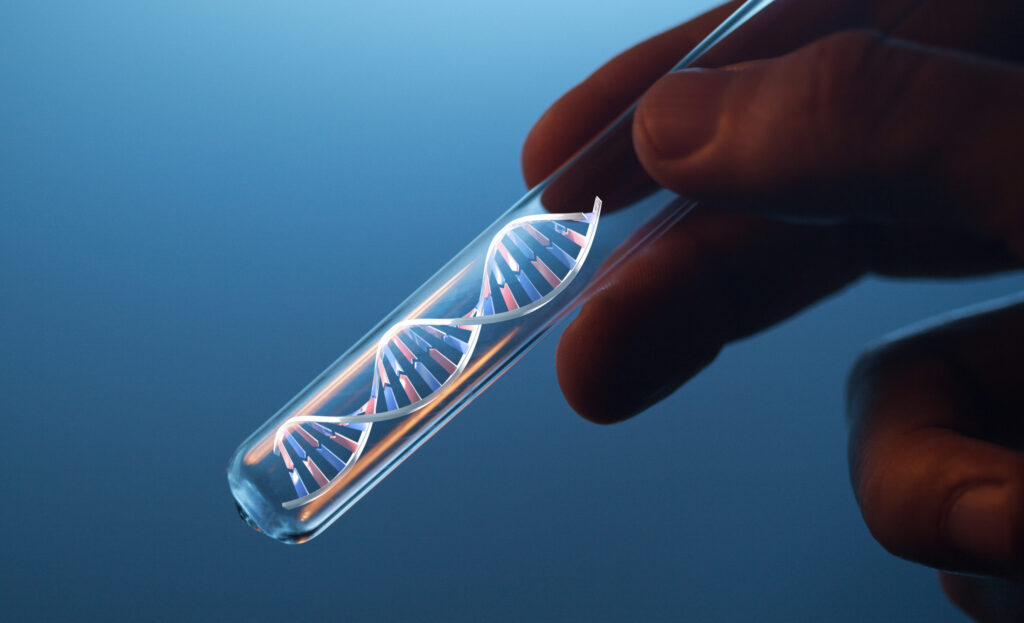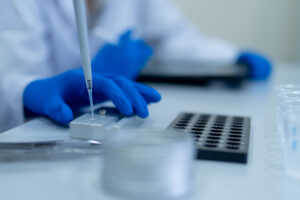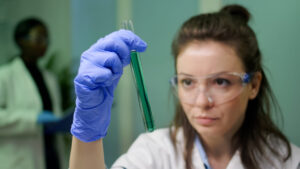What are lysosomal storage disorders?
They are a collection of almost 50 metabolic conditions which are inherited. They are triggered by a buildup of a range of toxic materials in the cells of the body, due to limited or arrested enzyme production due to specific gene mutations. They are multi-system disorders affecting multiple parts of the body – the skeleton, brain, skin, heart, and nervous system. As awareness of lysosomal storage disorders grows more types are identified.
Generally, lysosomal storage disorders occur in 1 in every 5,000 live births. Specific lysosomal disorders are more common in specific ethnicities – Tay-Sachs, for example, is more common in those of Ashkenazi-Jewish descent. A specific gene mutation that causes Hurler syndrome occurs more frequently amongst Scandinavian and Russian populations.
What are the causes of lysosomal storage disorders?
The symptoms of lysosomal storage disorders are triggered by an inborn error of metabolism which leads to the lack of or reduction in an enzyme.
They are inherited in an autosomal recessive pattern – this means an affected individual has received two copies of the gene mutation responsible for causing these disorders, from both parents. Those who receive just one copy of the gene mutation will be carriers, and their future children may be at risk for developing a lysosomal storage disorder.
With autosomal recessive disorders, there is a 25% chance of a child of two carriers being born completely healthy. There is a 25% chance of a child of two carriers being born with a rare disease. There is a 50% chance that the child of two carriers will be a carrier of the genetic mutation, like their parents.
There are however exceptions, and smoke lysosomal storage disorders are inherited in different ways. Some are X-linked, such as Fabry disease and Hunter syndrome.
For the most part, the exact genes that cause each type of lysosomal storage disorder are known. This makes genetic testing for each one significantly more accurate.
What are the symptoms of lysosomal storage disorders?
The specific symptoms of each unique disorder vary. However, all of them are caused by an enzyme deficiency which impacts the ability of the lysosomes in each of the cells of the body, to do what they need to do. What they need to do, is to break down complex components, such as proteins, into much simpler ones. If this does not happen, these components build up in the body’s cells. Hence the title ‘storage disorder.’
The symptoms of these disorders are known as progressive – meaning they get worse with time.
What are lysosomal storage disorders and their symptoms?
Batten disease: this is a juvenile type of a group of neurological conditions. The build-up here is of a fatty substance, lipopigment, in the brain and the tissue without nerve cells. One of the main initial, identifying symptoms of this syndrome is vision loss (optic atrophy), and these are usually first noticed before the age of eight years old. Other symptoms include intellectual developmental delay, leading to intellectual disability. This storage disorder is more common in those of Northern European and Scandinavian descent.
Fabry disease: this lysosomal storage disorder has symptoms that first occur either during early childhood or adolescence. However many individuals are not fully aware of these symptoms and their connection to a rare disease until later in adulthood. Severe burning pain in both the hands and feet is one of the first symptoms. This is usually accompanied by reduced sweating and an intolerance to warm temperatures or environments. A skin rash is a common symptom, and it may be most obvious between the hips and the knees.
Mucopolysaccharide Storage diseases: these include Hurler disease (all types of it), Hunter syndrome, Sanfilippo Types A, B, C, D, and others). This group of storage disorders is the result of an interruption in the breakdown of complex carbohydrates, or mucopolysaccharides, in the body. They compare some similar symptoms, including bone and joint anomalies that may cause issues with walking and movement. Short stature is a defining feature of this group of diseases, except for Sanfilippo.
Genetic testing for lysosomal storage disorders
This involves testing (usually with a blood draw) to understand and identify the specific gene mutation that causes each lysosomal storage disorder. Because this gene change is known for most, if not all of the types, of this rare disease, testing for storage disorders is considered to be highly accurate when it comes to a rare disease diagnosis.
An individual’s unique set of symptoms will be used to help identify potential rare diseases, and this will affect the type of genetic testing recommended.
Genetic counseling for lysosomal storage disorders
Genetic counseling for storage disorders is an important part of the genetic diagnosis for lysosomal, storage disorders process. Genetic counselors are genetic experts who can understand and place an individual’s unique set of symptoms within the context of a rare disease, and then be able to recommend the right and most accurate type of genetic testing for this.
As multi-system disorders, with potential symptoms affecting multiple parts of the body – genetic counseling provides an important emotional and medical support service for families undergoing screening, testing, and diagnosis for them. It is a critical service that everyone should have access to.



